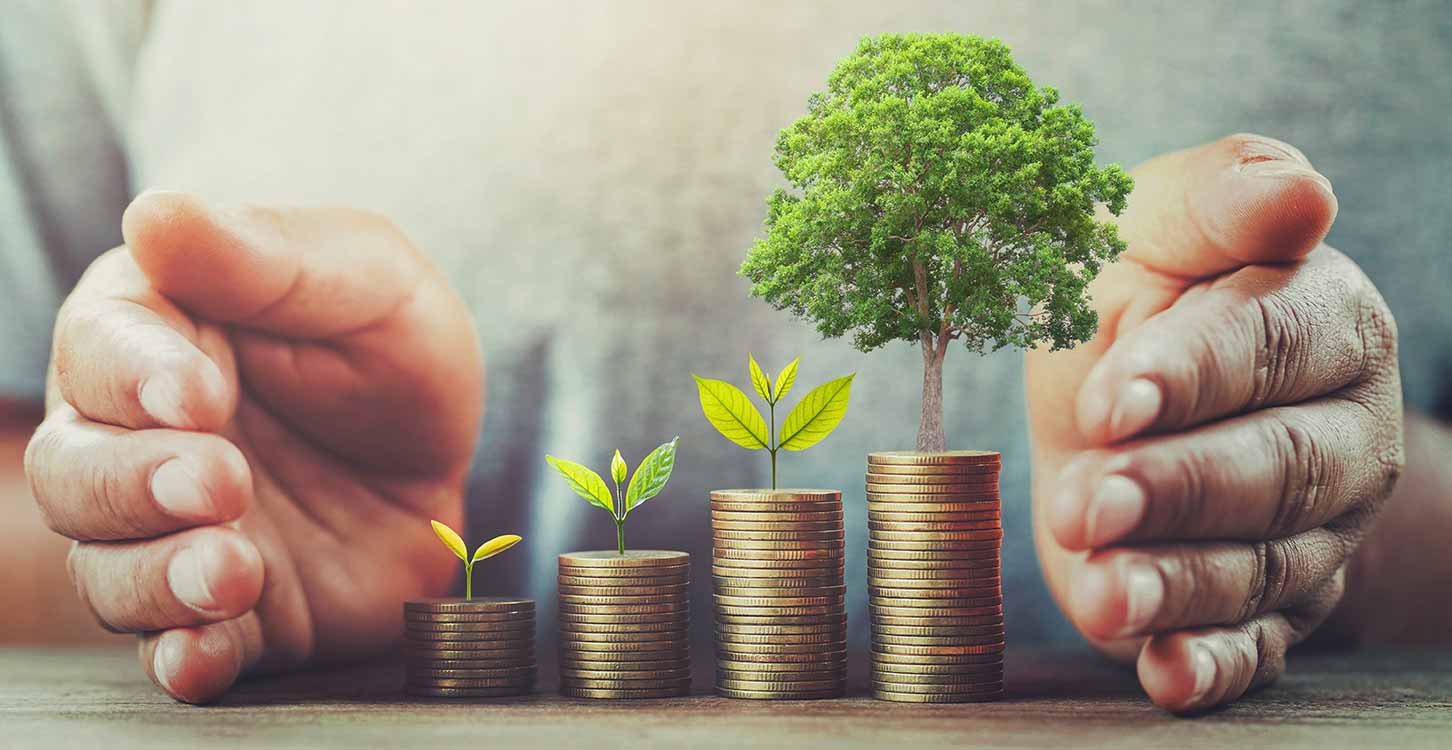Ola Adeosun, Partner, and Phoebe Stone, Head of Sustainable Investing, at LGT Vestra, highlight how wealthy families are embracing Environmental, Social and Governance factors in both their businesses and investment portfolios.
The COVID-19 pandemic has acted as a turning point for many, giving us all the chance to pause and address the unsustainable nature of our daily lives. This watershed moment has prompted many of our entrepreneurial family clients to address various key objectives in relation to family values, wealth accumulation and wealth preservation, whilst also making a positive impact on the world around them.
For these families, maintaining a balance sheet which provides alternative resources away from the main family business could also represent an appropriate means of cultivating family capital, thereby protecting family wealth for both current and future generations
The pandemic has demonstrated that small and medium-sized businesses are vulnerable to external systemic shocks, which could have an adverse impact on revenues and profitability. Where the family’s main asset and livelihood is concentrated entirely in the business, this represents a significant diversification risk. As the family grows and the number of members dependent on the financial success of the business increases, it becomes even more important to review their balance sheet and diversify family wealth. For these families, maintaining a balance sheet which provides alternative resources away from the main family business could also represent an appropriate means of cultivating family capital, thereby protecting family wealth for both current and future generations.
More than just profitability
Entrepreneurial families can be known to dedicate their lives, both physically and emotionally, to building a successful business, which provides a sense of purpose, accomplishment and enables the family to maintain their lifestyleA recent survey by PwCi indicates that family-owned businesses have been slower at embracing ESG practices within their businesses. However, engagement in social responsibility is often ingrained in their DNA; over 82% of respondents in the survey indicated that they engage in activities of social responsibility, and 42% are actively involved in philanthropy. This is hardly surprising. Many of the most successful family businesses are those committed to more than just profitability. A family business’ long-term perspective makes them well-suited to embrace ESG investing. Entrepreneurial families can be known to dedicate their lives, both physically and emotionally, to building a successful business, which provides a sense of purpose, accomplishment and enables the family to maintain their lifestyle. Additional qualities, such as agility, resilience, sense of purpose and inherent entrepreneurial spirit, are similarly suited to this way of thinking.
Changing perspectives
Society, which crucially includes the next generation of family business leaders, is increasingly aware of the importance of sustainability. As the next generation begins to inherit family businesses, the focus will increasingly follow the societal shift to aligning investments with personal values. Sustainable investing can provide entrepreneurial families with a multitude of benefits to grow, preserve and transition family wealth in accordance with the family’s values and vision of itself.
Sustainable investing can provide entrepreneurial families with a multitude of benefits to grow, preserve and transition family wealth in accordance with the family’s values and vision of itself
The problems highlighted by COVID-19 demonstrate some of the systemic issues within the fabric of our global ecosystem, both social and environmental. It is clear that, going forward, economic growth and progress needs to look and feel different.
It needs to be more equitable, with more recognition of societal values and care for the environment. The pandemic has exposed the vulnerability of our global population, as well as the intrinsic link between healthcare systems and the economy. These are challenges that need to be tackled at a national level, but the corporate sector (and specifically financial markets) play an integral part. Sustainable investment strategies offer investors the opportunity to allocate capital to companies that are focused on the long-term sustainability of our planet.

Top Tip

Lee Goggin
Co-Founder
Why is sustainable investing important now?
Using ESG analysis alongside financial analysis provides a holistic way of assessing risk and opportunities. The world faces a multitude of severe challenges, including increased plastic pollution from the personal protective equipment produced in response to COVID-19 pandemic (around 75% of which will end up in landfills or the ocean), the decreasing availability of safe drinking water and rising malnutrition in many developing countries, and the tackling of racial injustice, to highlight just a few. These are not new issues, but the way that the global standpoint has shifted is.
Mark Carney, former Governor of the Bank of England and now United Nations Special Envoy for Climate Change and Finance, recently reported that $3.5 trillion needs to be invested every year for the next three decades in order to mitigate global warming risks.iiAs much as it is socially responsible, Carney also declared that it is “an enormous investment opportunity.”
Using ESG analysis alongside financial analysis provides a holistic way of assessing risk and opportunities
In recent months, we have seen some extremely positive climate-related commitments from several of the world’s superpowers. There has been a wave of countries, including China, committing to net-zero targets. Russia will cut 30% of their greenhouse gas emissions by 2030. President Biden recommitted the US to the Paris Agreement and has pledged that the US will be carbon neutral by 2050.iii There has also been a dramatic increase in the number of corporate commitments to net-zero goals, including our own commitment at LGT, committing to net-zero across our operations and investments by 2030.
A systemic shift
The long-term impact of the COVID-19 pandemic on the UK family business sector is yet to be fully determined, but what is not in doubt is that many have experienced a significant drop in output. As we emerge from the current crisis, it is important that entrepreneurial families and their professional advisers work towards ensuring a diversified balance sheet, that both safeguards long-term prosperity and finds greater purpose.
As we emerge from the current crisis, it is important that entrepreneurial families and their professional advisers work towards ensuring a diversified balance sheet, that both safeguards long-term prosperity and finds greater purpose.
And, while some commentators dismiss sustainable investing as the most recent fad, we believe that ESG is in fact a systemic shift in how we think and act. If we have learned anything from the 2008 financial crisis, it is how government and the political willingness has the propensity to shape markets. The governmental will and capital behind reducing carbon emissions as the climate crisis rages will provide extraordinary opportunities for investors for many years to come. We plan to be at the forefront of this green revolution.
Important information
The investment strategy and financial planning explanations of this piece are for informational purposes only, may represent only one view, and are not intended in any way as financial or investment advice. Any comment on specific securities should not be interpreted as investment research or advice, solicitation or recommendations to buy or sell a particular security.
We always advise consultation with a professional before making any investment and financial planning decisions.
Always remember that investing involves risk and the value of investments may fall as well as rise. Past performance should not be seen as a guarantee of future returns.





